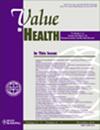利益相关者对加强药物依从性干预措施的看法
IF 4.9
2区 医学
Q1 ECONOMICS
引用次数: 0
摘要
药物依从性的患病率约为50%,是一个重大的医疗保健挑战,增加了潜在可避免的不良事件的风险,相关成本从每人每年949美元到44190美元不等。ISPOR药物依从性和持久性特别兴趣小组于2023年进行了一项系统文献综述(SLR),以评估用于评估药物依从性增强干预(MAEIs)的措施。研究结果显示,尽管经常测量药物依从性和临床结果,但经济和患者报告的结果尚未得到充分探讨。重要的是,SLR还强调需要基于共识的标准来评估mais。本评论通过介绍主要利益相关者(患者、制造商、提供者、卫生技术评估机构和付款人)的观点来补充SLR的发现。这些利益攸关方强调通过MAEIs证明改善临床结果、健康相关生活质量和潜在成本节约的重要性。认识到药物依从性对患者预后以及监管和覆盖决策的重要性,制造商开始利用人工智能来制定个性化的依从性策略。供应商正在通过以患者为中心的方法、健康公平培训和基于价值的合同来解决不遵守问题。除了这些新的依从性改善举措外,MAEIs还需要考虑基于个人社会经济因素和社会需求的个性化依从性策略,以提高其有效性。未来的研究应侧重于量化与MAEI实施相关的成本,以及不同利益相关者如何承担这些成本,这对MAEI的大规模采用和可持续性至关重要。本文章由计算机程序翻译,如有差异,请以英文原文为准。
Stakeholders’ Perspectives on Medication Adherence Enhancing Interventions
With an approximately 50% prevalence rate, medication nonadherence is a significant healthcare challenge that increases the risk of potentially avoidable adverse events and associated costs ranging from $949 to $44 190 per person annually. The ISPOR Medication Adherence and Persistence Special Interest Group conducted a systematic literature review (SLR) in 2023 to evaluate measures used in assessing medication adherence enhancing interventions (MAEIs). The findings revealed that although medication adherence and clinical outcomes were frequently measured, economic and patient-reported outcomes were underexplored. Importantly, the SLR also highlighted the need for consensus-based criteria to assess MAEIs.
This commentary supplements the SLR findings by presenting perspectives from key stakeholders: patients, manufacturers, providers, health technology assessment agencies, and payers. These stakeholders emphasize the importance of demonstrating improved clinical outcomes, health-related quality of life, and potential cost savings through MAEIs. Recognizing the significance of medication adherence for patient outcomes and regulatory and coverage decisions, manufacturers are starting to utilize artificial intelligence for developing personalized adherence strategies. Providers are addressing nonadherence through patient-centered approaches, health equity training, and value-based contracts. In addition to these new adherence-improving initiatives, MAEIs also need to consider personalized adherence strategies based on individual socioeconomic factors and social needs to improve their effectiveness. Future studies should focus on quantifying the costs associated with MAEI implementation and how such costs can be borne by different stakeholders, which will be crucial for large-scale adoption and sustainability of MAEIs.
求助全文
通过发布文献求助,成功后即可免费获取论文全文。
去求助
来源期刊

Value in Health
医学-卫生保健
CiteScore
6.90
自引率
6.70%
发文量
3064
审稿时长
3-8 weeks
期刊介绍:
Value in Health contains original research articles for pharmacoeconomics, health economics, and outcomes research (clinical, economic, and patient-reported outcomes/preference-based research), as well as conceptual and health policy articles that provide valuable information for health care decision-makers as well as the research community. As the official journal of ISPOR, Value in Health provides a forum for researchers, as well as health care decision-makers to translate outcomes research into health care decisions.
 求助内容:
求助内容: 应助结果提醒方式:
应助结果提醒方式:


